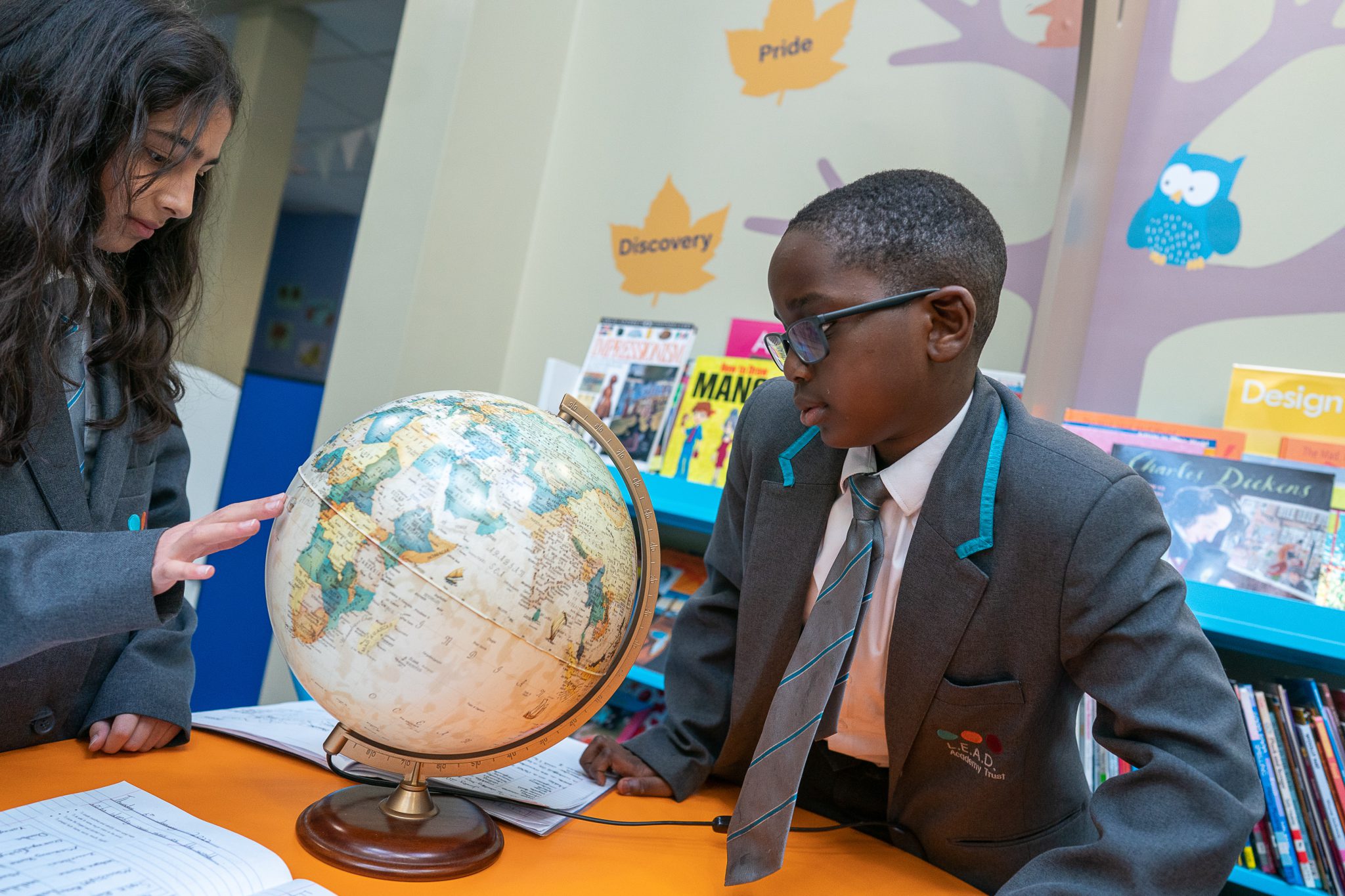
A high-quality geography education should inspire in pupils a curiosity and fascination about the world and its people that will remain with them for the rest of their lives. Teaching should equip pupils with knowledge about diverse places, people, resources and natural and human environments, together with a deep understanding of the Earth’s key physical and human processes.
As pupils progress, their growing knowledge about the world should help them to deepen their understanding of the interaction between physical and human processes, and of the formation and use of landscapes and environments. Geographical knowledge, understanding and skills provide the frameworks and approaches that explain how the Earth’s features at different scales are shaped, interconnected and change over time.
The national curriculum for geography aims to ensure that all pupils:

The teaching of Geography at Sycamore Academy intends to inspire pupils to gain a curiosity and fascination about St Ann’s as a community within Great Britain, Europe and the World. To be able to understand how they fit within both the local and world community and the positive impact which they can have upon it.
An understanding of geography is essential to our understanding of the world. At Sycamore Academy, we believe in teaching methods which encourage enquiry-based research activities and encourage children to ask and answer a range of geographical questions. We provide children with the opportunity to use a variety of information presented in different ways, including maps, statistics, graphs, pictures or aerial photographs.
Wherever possible, we use various ICT equipment to enhance children’s learning and we promote children to experience geography for ‘real’ through encouraging learning to take place both onsite and offsite. Geographical fieldwork and investigations provide important opportunities for working in teams and developing individual responsibility.
Through the teaching of geography, we aim to:
All pupils are encouraged to reach their full potential in geography through the provision of varied opportunities. We recognise that our curriculum planning must allow pupils to gain a progressively deeper understanding and competency as they move through the school.
The teaching of geography is covered through four key areas of learning:
Locational knowledge; Place knowledge; Human and physical geography; Geographical skills and field work. We recognise that we have children of widely different geographical abilities in all classes, and therefore we ensure we provide suitable learning for all children by matching the challenge of the task to the ability of the child.
Planning for geography is carried out in stages: long term plans then medium-term plans. The long-term plans map out the topics studied in each term for each year group. From this, medium term plans are created, which outline the aspects of geography which are to be covered during the teaching and learning of the topic over a half term/term. These plans outline the specific learning objective and intended learning outcomes for the lesson.
Throughout the school, from Foundation 1 to Year 6, children are given numerous opportunities to explore the local environment and appreciate what our locality has to offer. We have developed positive, strong links with the St Anns Community Orchard, where each class has the opportunity for visits twice a year.
Through our knowledge-based curriculum we intend to ensure that children have the knowledge and skills to think as geographers’. To equip them (through their learning at Sycamore Academy) to be life-long leaners who see the purpose of geographical knowledge and understanding. Children should be equipped with knowledge about diverse places, people, resources and natural and human environments, together with a deep understanding of the Earth’s key physical and human processes. We aim to instil aspirations in our children by showing them the possibilities which geographical knowledge can lead to such as a career as a town planner, landscape architect or an environmental consultant.